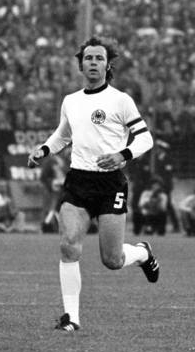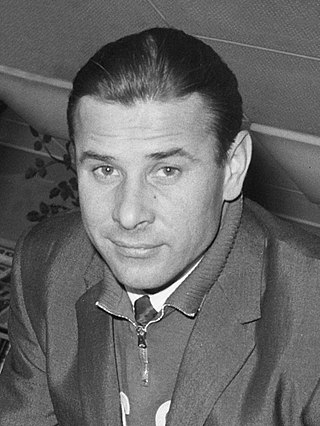
Lev Ivanovich Yashin was a Soviet professional footballer considered by many to have been the greatest goalkeeper in the history of the game. He was known for his athleticism, positioning, imposing presence in goal, and acrobatic reflex saves. He was also deputy chairman of the Football Federation of the Soviet Union.

Franz Anton Beckenbauer was a German professional football player, manager, and official. Nicknamed der Kaiser, he is widely regarded as one of the greatest players of all time, and is one of nine players to have won the FIFA World Cup, the European Champions Cup, and the Ballon d'Or. Beckenbauer was a versatile player who started out as a midfielder, but made his name as a central defender. He is often credited as having invented the role of the modern sweeper.

Gerhard "Gerd" Müller was a German professional footballer. A prolific striker, especially in and around the six-yard box, he is widely regarded as one of the greatest goalscorers and players in the history of the sport. With success at club and international level, he is one of nine players to have won the FIFA World Cup, the UEFA Champions League and the Ballon d'Or.
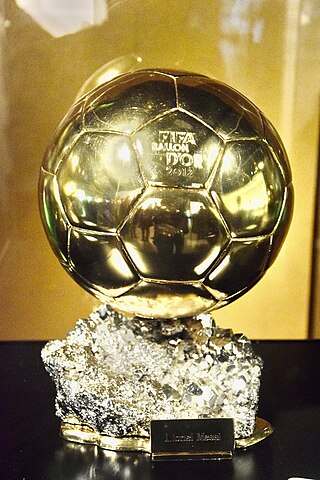
The Ballon d'Or is an annual football award presented by French magazine France Football since 1956 to honour the player deemed to have performed the best over the previous season.
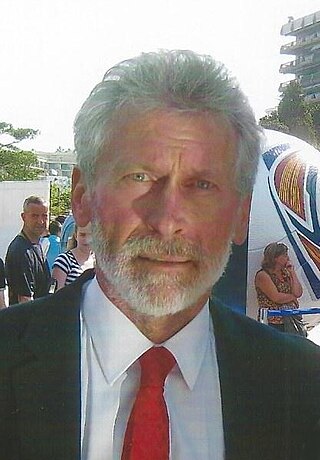
Paul Breitner is a German former professional footballer who played as a midfielder and left-back. Considered one of the best full-backs of all time, and one of the best players of his era, Breitner was named in the FIFA World Cup All-Time Team. In 2004 he was named one of the Top 125 greatest living footballers as part of FIFA's 100th anniversary celebration.
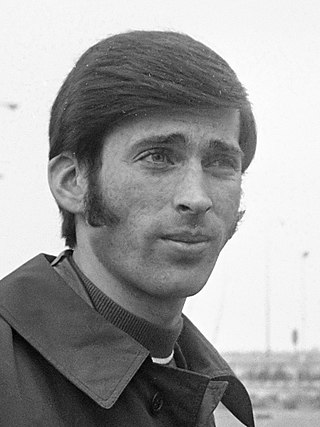
Kazimierz Deyna was a Polish professional footballer who played as an attacking midfielder in the playmaker role and was one of the most highly regarded players of his generation, due to his excellent vision.
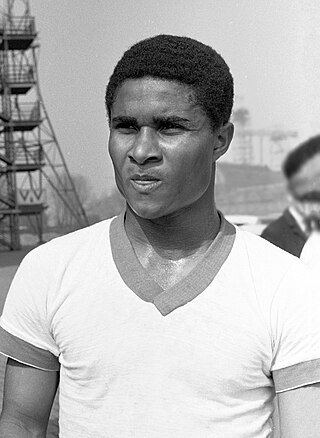
The 1965 Ballon d'Or, given to the best football player in Europe as judged by a panel of sports journalists from UEFA member countries, was awarded to Eusébio on 28 December 1965.

The 1994 Ballon d'Or, given to the best football player in Europe as judged by a panel of sports journalists from UEFA member countries, was awarded to Hristo Stoichkov on 20 December 1994.
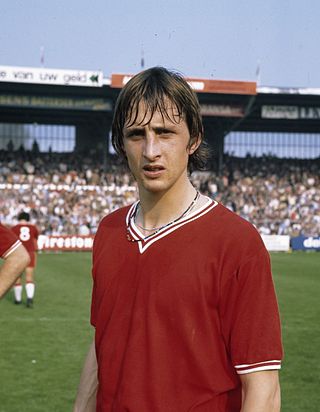
The 1971 Ballon d'Or, given to the best football player in Europe as judged by a panel of sports journalists from UEFA member countries, was awarded to Johan Cruyff on 28 December 1971.

The 1991 Ballon d'Or, given to the best football player in Europe as judged by a panel of sports journalists from UEFA member countries, was awarded to Jean-Pierre Papin on 24 December 1991.

The 1968 Ballon d'Or, given to the best football player in Europe as judged by a panel of sports journalists from UEFA member countries, was awarded to George Best on 24 December 1968.

The 1986 Ballon d'Or, given to the best football player in Europe as judged by a panel of sports journalists from UEFA member countries, was awarded to Soviet forward Igor Belanov on 30 December 1986. There were 26 voters, from Austria, Belgium, Bulgaria, Czechoslovakia, Denmark, East Germany, England, Finland, France, Greece, Hungary, Italy, Luxembourg, the Netherlands, Poland, Portugal, Republic of Ireland, Romania, Scotland, Soviet Union, Spain, Sweden, Switzerland, Turkey, West Germany and Yugoslavia. Belanov became the third Soviet and the second Ukrainian national to win the award after Lev Yashin (1963) and Oleg Blokhin (1975).

The 2012 FIFA Ballon d'Or Gala was the third year for FIFA's awards for the top football players and coaches of the year. The awards were given out in Zürich on 7 January 2013, with Lionel Messi winning a record fourth consecutive Ballon d'Or.
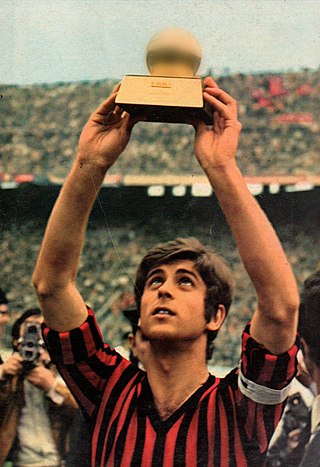
The 1969 Ballon d'Or, given to the best football player in Europe as judged by a panel of sports journalists from UEFA member countries, was awarded to the Italian midfielder Gianni Rivera (Milan) on 23 December 1969. There were 26 voters, from Austria, Belgium, Bulgaria, Czechoslovakia, Denmark, East Germany, England, Finland, France, Greece, Hungary, Italy, Luxembourg, the Netherlands, Norway, Poland, Portugal, Republic of Ireland, Romania, Soviet Union, Spain, Sweden, Switzerland, Turkey, West Germany and Yugoslavia. Rivera became the second Italian to win the award, after Omar Sívori in 1961. He was also the first Milan player to win the trophy.
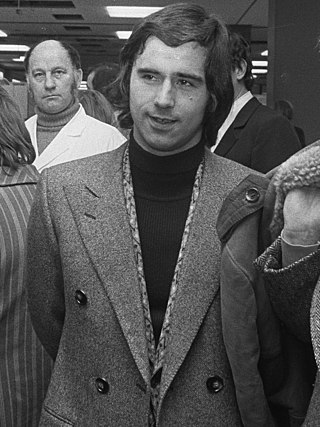
The 1970 Ballon d'Or, given to the best football player in Europe as judged by a panel of sports journalists from UEFA member countries, was awarded to the West German forward Gerd Müller on 29 December 1970. There were 26 voters, from Austria, Belgium, Bulgaria, Czechoslovakia, Denmark, East Germany, England, Finland, France, Greece, Hungary, Italy, Luxembourg, the Netherlands, Norway, Poland, Portugal, Republic of Ireland, Romania, Soviet Union, Spain, Sweden, Switzerland, Turkey, West Germany and Yugoslavia. Müller became the first West German national and the first Bayern Munich player to win the Ballon d'Or.

The 1974 Ballon d'Or, given to the best football player in Europe as judged by a panel of sports journalists from UEFA member countries, was awarded to the Dutch striker Johan Cruyff on 31 December 1974. There were 26 voters, from Austria, Belgium, Bulgaria, Czechoslovakia, Denmark, East Germany, England, Finland, France, Greece, Hungary, Italy, Luxembourg, the Netherlands, Norway, Poland, Portugal, Republic of Ireland, Romania, Soviet Union, Spain, Sweden, Switzerland, Turkey, West Germany and Yugoslavia. Cruyff became the first footballer to earn the award three times, following up from his wins in 1971 and 1973. French playmaker Michel Platini and Dutch compatriot Marco van Basten also won the Ballon d'Or three times after him.
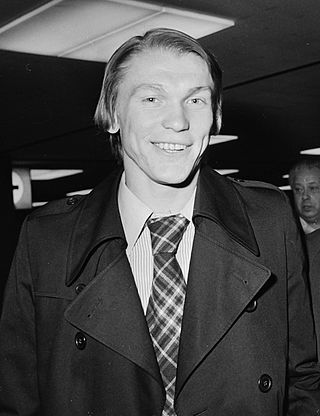
The 1975 Ballon d'Or, given to the best football player in Europe as judged by a panel of sports journalists from UEFA member countries, was awarded to the Soviet forward Oleg Blokhin on 30 December 1975. There were 26 voters, from Austria, Belgium, Bulgaria, Czechoslovakia, Denmark, East Germany, England, Finland, France, Greece, Hungary, Italy, Luxembourg, the Netherlands, Norway, Poland, Portugal, Republic of Ireland, Romania, Soviet Union, Spain, Sweden, Switzerland, Turkey, West Germany and Yugoslavia. Blokhin became the second Soviet footballer who won the trophy after Lev Yashin (1963).

The 1980 Ballon d'Or, given to the best football player in Europe as judged by a panel of sports journalists from UEFA member countries, was awarded to Karl-Heinz Rummenigge on 30 December 1980.

The 1976 Ballon d'Or, given to the best football player in Europe as judged by a panel of sports journalists from UEFA member countries, was awarded to the West German defender Franz Beckenbauer on 28 December 1976. There were 26 voters, from Austria, Belgium, Bulgaria, Czechoslovakia, Denmark, East Germany, England, Finland, France, Greece, Hungary, Italy, Luxembourg, the Netherlands, Norway, Poland, Portugal, Republic of Ireland, Romania, Soviet Union, Spain, Sweden, Switzerland, Turkey, West Germany and Yugoslavia.
